
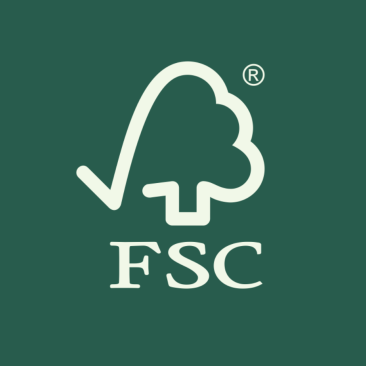
Forests For All Forever
FSC helps take care of forests and the people and wildlife who call them home.
FSC works to address the most pressing issues facing the world’s forests – from forests loss to the rights of indigenous peoples, communities and workers, to the need for greater conservation to protect biodiversity, ecosystems and wildlife habitat, and climate change effects - ensuring Forests For All Forever.
The work of FSC help mitigate and adapt to climate change effects by ensuring sustainable forests around the world. Ending the loss and degradation of forest systems and promoting sustainable management and restoration programmes are key to achieving positive climate action.
Discover The Value of FSC
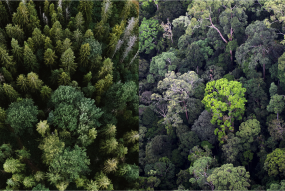
For Forests
Forests are incredibly valuable, not only for the survival of people but for the rest of the planet. By looking after forests, we preserve one of our best defences against climate change. Forests are also home to...
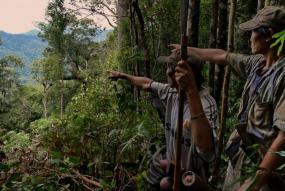
For People
According to the Food and Agriculture Organization (FAO), more than 25 per cent of the world’s population rely on forests for their survival. Ensuring that the rights of forest-dependent communities are...

For Businesses
Consumers and societies expect businesses to be part of the solution when it comes to environmental and social issues. For any business associated with productive forests and forest products, working with FSC...
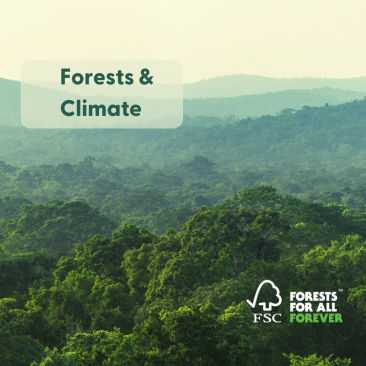
Forests and Climate
We are at a defining moment for the world’s forests. Without healthy and resilient forests, biodiversity will continue to be lost at an alarming rate and we will lose the fight against climate change. We know this, but forest fire events are happening more often around the world, and the conversion and degradation of forests continue, releasing large amounts of carbon into the atmosphere.
While this situation may appear overwhelming, we know that forest stewardship, including sound efforts towards protection, conservation, and restoration as well as active management of forest products and services, can help.
For more than 25 years, FSC has pioneered responsible forest solutions that protect forests’ natural lifecycles.
FSC regards climate change as a very serious threat to humanity. Climate change undermines the natural ecosystems on which we rely for our basic needs – food, water, health, and shelter – and many of the products that support our livelihoods and economies. Today, climate change is damaging ecosystems at an unprecedented rate, but these same ecosystems are also our strongest allies in mitigating future climate change.
With its certification scheme for forest management, its chain of custody control standard, and its outreach to consumers with its labels, FSC contributes to mitigating climate change by promoting sustainable forest management, preventing deforestation and degradation, as well as promoting the recycling of wood and other forest-based materials. Our global framework for forest management standards gives special attention to protecting the function of forests as net removers of CO2 from the atmosphere. FSC has also started developing new tools for rewarding the preservation of valuable ecosystem services, including carbon storage, in responsibly managed forests.
Forests that measure carbon storage using our Ecosystem Services procedure realize a 14 per cent average increase in carbon stocks over a management cycle by implementing forest management practices such as increased rotation length and preservation of dead wood.
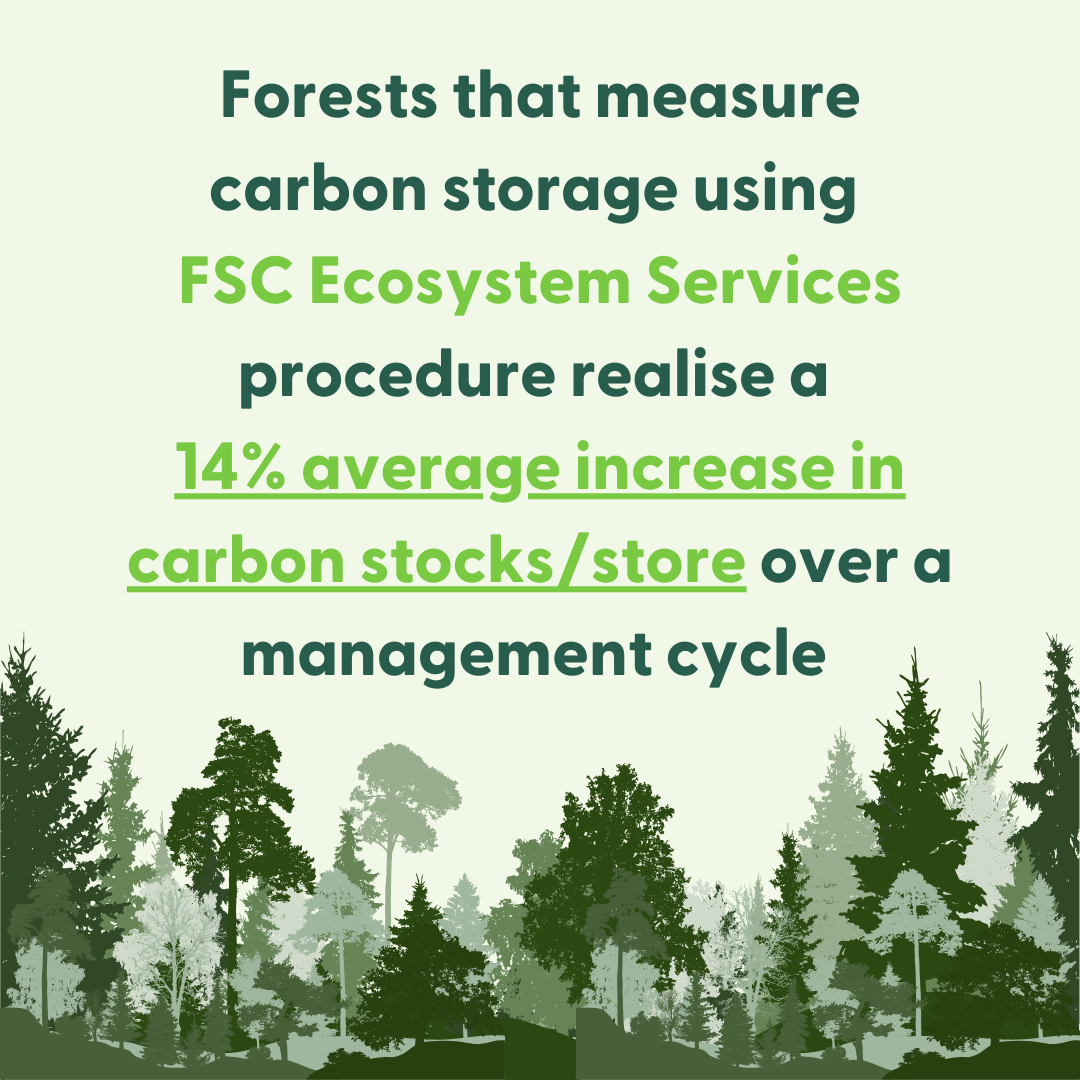
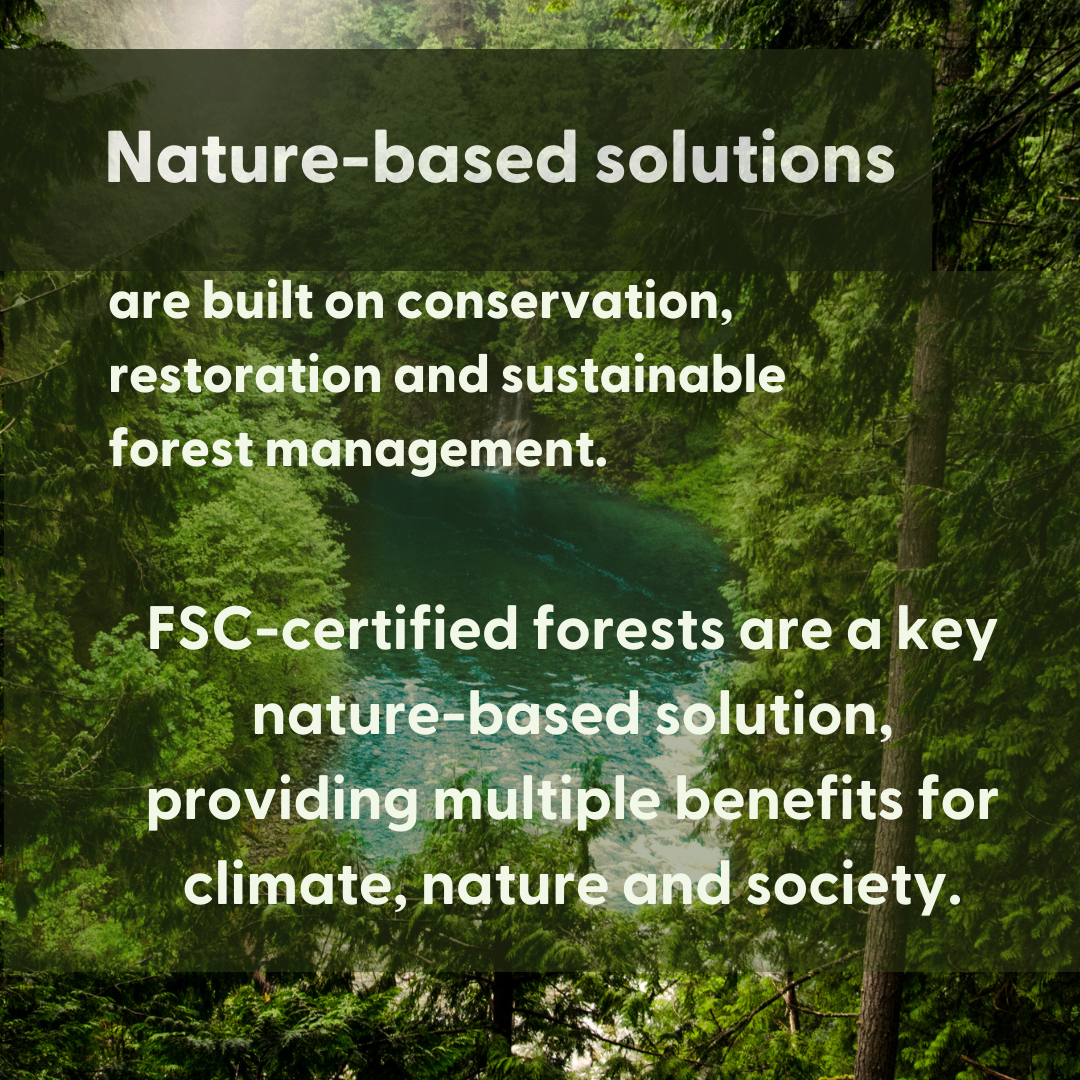
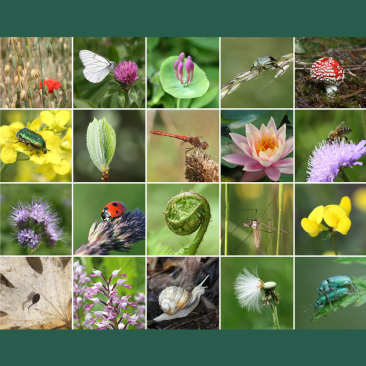
Forests and Biodiversity
Forests support earth’s biodiversity
Forests are incredibly diverse ecosystems, hosting the majority of terrestrial plant and animal species. They represent a beautifully balanced system where soil, plants, and animals all depend on each other to thrive.
But why does this matter for us? First, biodiverse ecosystems provide the vital materials we need for food, shelter, clothing, and more. Biodiversity also fosters resilience. Healthy, rich ecosystems make earth habitable for humans. When forests disappear, these life-supporting systems begin to fail, putting humans at significant risk.
According to the Intergovernmental Science-Policy Platform on Biodiversity and Ecosystem Services (IPBES), biodiversity is now declining faster than ever before. FSC’s responsible forestry initiatives protect biodiversity in forests around the world.
FSC standards and initiatives are contributing positively to forest ecosystems around the world
Many studies and observations over the years have shown that wildlife thrive in FSC-certified forests
Stories from FSC certified forests
- Jaguars, commonly known as “otorongos” by locals, are thriving in an FSC-certified forest in Peru (The Otorongo Forest). The FSC Ecosystem Services Procedure has helped Maderacre monitor and protect 135 species, and verify its positive impacts on biodiversity and carbon, supporting the protection of the most iconic tropical rainforest in the world (Madeacre: Protecting biodiversity in the Heart of the Amazon)
- Saving the Cantabrian Brown Bear from extinction through FSC Ecosystem Services Procedure
- Saving Namibia's wild cheetah from extinction

Other studies and observations
a) A biodiversity research results show:
- observed 43% more wildlife in FSC-certified than in non-FSC logging concessions
- the effect was most pronounced for species weighing over 10 kg
- FSC-certified concessions contained higher abundances of species of high conservation priority such as forest elephants, primates and large carnivores
"The findings provide strong evidence that FSC-certified forest management contributes to the wildlife conservation value of logged forests."
(Author: Joeri A. Zwert, E.H.M. Sterck, Pita A. Verweij, Fiona Maisels, Jaap Van Der Waarde, Emma A.M. Geelen, Georges Belmond Tchoumba, Hermann Frankie Donfouet Zebaze, Marijke Van Kuijk)
b) Another report, by WWF, shows that orangutans, gorillas and chimpanzees are all getting a helping hand from FSC. Several studies conducted over the past few years in Borneo, the Congo Basin, and the Amazon forest show that the great apes and other large mammals are often thriving in FSC certified forests. (Source: Preferred by Nature)
c) "Researchers have found that UNESCO World Heritage Sites and other protected areas benefited from having FSC / Rainforest Alliance Certified forestry businesses as neighbors". (Source: Rainforest Alliance)
d) "In Guatemala's culturally and ecologically significant Peten region, researchers found that over a 20-year period, actively managed FSC-certified forests experience substantially lower rates of deforestation than nearby protected areas, and forest fires only affected 0.1 percent of certified land area, compared to 10.4 percent of protected areas" (Source: Rainforest Alliance)
Bringing Forests to the Forefront of Biodiversity Action
Read about how FSC brings forests to the forefront of coordinated biodiversity action here.
Protecting the Malayan Tiger Habitat
The habitat of the Malayan Tiger is deeply interconnected with its survival. Deforestation poses a significant challenge as it leads to the fragmentation of their habitats and the conversion of their land into other forms, jeopardising the breeding populations of these magnificent creatures.
In order to ensure the survival of the Malayan Tiger, it is imperative to focus on safeguarding and conserving their habitat, and preserving its essential environmental conditions.
FSC sets the bar for biodiversity protection in certified forests
FSC’s forestry standards assure the highest biodiversity protection currently available for commercial forestry. They require forest managers to enhance, conserve, or restore ecosystem services and repair any negative environmental impacts. It is also the only forest certification system that requires managers to protect or enhance areas with High Conservation Values. These include rare, threatened, or endangered species and habitats, and critical ecosystem services. FSC requires organizations to demonstrate they are not converting natural forests to plantations, or other land uses, and they are not converting plantations to non-forest land use. They must also demonstrate their conservation and restoration efforts. FSC requires organizations to prevent negative impacts of management activities on the forest ecosystems, and to mitigate and repair those that occur.
A WWF study conducted in the Peruvian Amazon showed that FSC-certified concessions have a greater richness of species such as amphibians, insects, and monkeys than non-FSC logging concessions. Surveys also found that densities of large and medium-sized animals in FSC-certified logging concessions were similar to or even higher than in protected areas.

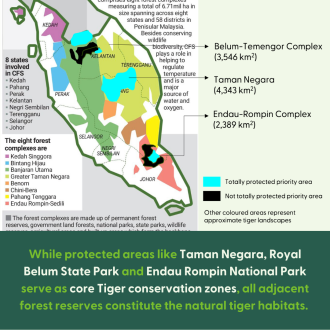
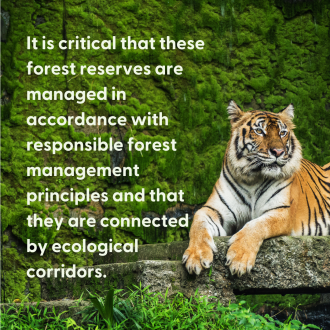
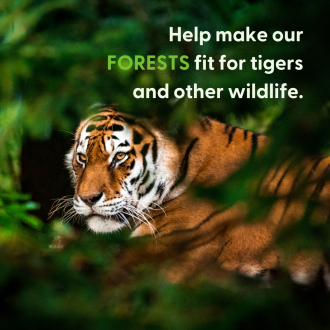
Protect forests, protect wildlife
Tiger conservation zones in Malaysia
While protected areas such as Taman Negara, Royal Belum State Park and Endau Rompin National Park form the core areas for Tiger conservation, all adjacent forest reserves constitute natural tiger habitats - all of which must be responsibly managed in accordance with strict standards.
FSC sets the bar for biodiversity protection in certified forests
Protecting plant and animal species is one of the most important goals of responsible forest management. As the pioneer of forest certification, the FSC sets the standard for responsible forest stewardship.
FSC is the leader in sustainable forest management, operating the world’s most rigorous and trusted forest certification system.
FSC certification assures the highest requirements for biodiversity protection currently available for commercial forestry. Managers must protect rare, threatened, or endangered species and critical ecosystem services.
Secure the future of Malayan Tigers
Protect and Connect Tiger habitats. Help make our forests fit for tigers and other wildlife. Choose #FSC
Demonstrating Impacts
We are dedicated to compiling evidence to demonstrate outcomes and impacts of FSC certification. Currently, the two main sources of evidence are internally generated data and independent scientific studies.

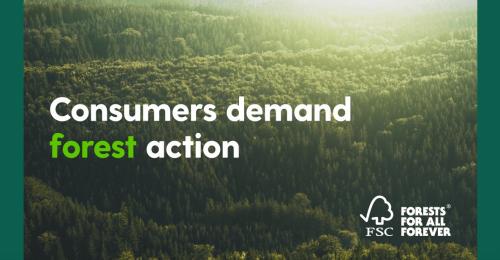
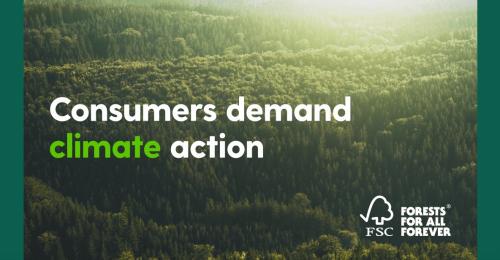
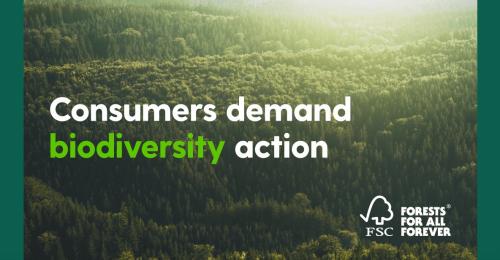
Trusted by Consumers
New research from FSC and GlobeScan – a global insights and advisory consultancy, reveals that consumers want to make sustainability-focused purchasing decisions and trusted third party certification labels play an increasingly important role in it.
According to the research, consumers are increasingly concerned about sustainability issues strongly associated with forests. In fact, the primary concern of consumers among forest issues is the impact of deforestation on climate and biodiversity. The survey found that 86 per cent of consumers try to avoid products that damage biodiversity and almost seven in ten of global consumers want to choose products that do not contribute to climate change.

Diversity, gender and workers’ rights
FSC’s approach to responsible forestry promotes diversity, equality and workers’. For FSC, diversity is key cornerstone to ensure equality in our certification scheme and in our organization. It includes workers’ rights, Indigenous Peoples and local communities engagement and gender equality.
FSC P&C Principle 2 outlines that certified organisations must maintain or enhance the social and economic wellbeing of all workers, including requirements for gender equity. FSC Core Labour requirements have also been added to the Chain of Custody requirements recently.

SLIMF Standard
A small or low-intensity managed forest, or SLIMF, can qualify for streamlined requirements and auditing procedures that reduce the cost of implementation and audit. To facilitate this, we have worked to build...

Group Standard
A means of getting forest management certification by grouping together different forestry unites under a single group entity who all use the same set of rules and forestry management practices.

Continuous Improvement Procedure
Procedure that allows small forest owners and communities to be initially certified based only on a subset of forest management requirements and offers flexible steps towards conformity with the remaining...
Processes to Increase FSC's Impact for small-scale, community and family forests
These processes are aimed at facilitating the certification process for smallholders, particularly those in the non-timber forest product (NTFP) operations, including natural rubber.
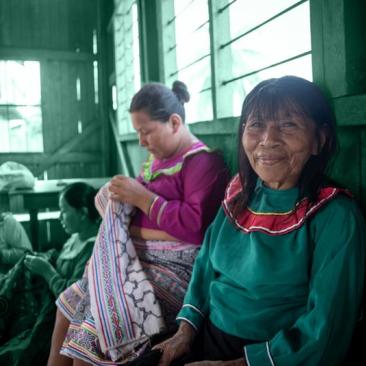
Small-scale and community forests
Small-scale and community forests are at the heart of FSC. The specific challenges that these groups face are not only linked to the requirements of FSC certification, but also to access markets that value sustainability. To rise to these challenges, we are continuously working on increasing our impact and making the FSC more attractive to these stakeholders.

Climate & FSC Ecosystem Services Procedure
In FSC certified forests, valuable ecosystem services are protected – and in 2018, FSC introduced an Ecosystem Services Procedure to demonstrate and communicate about the positive impact of responsible forest...

Nature-based solutions
"Nature-based solutions for climate harness the power of nature to reduce greenhouse gas emissions and also help us adapt to the impacts of climate change. They are win-win solutions that involve protecting...

Sustainable timber: a renewable resource, and...
Sustainable timber products and buildings can contribute to mitigating climate change by physically storing carbon and substituting more environmentally damaging, energy-intensive and non-renewable materials e.g...
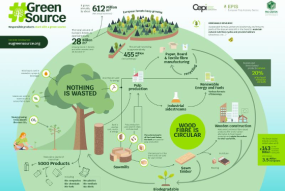
Climate-neutral circular economy
We believe that an effective circular economy starts with sustainably sourced raw materials. FSC has also a specific recycled label meaning that products have been verified as being made from 100% recycled...
Indigenous Peoples
FSC actively supports the rights of Indigenous Peoples and prioritizes these rights in Principle 3 of our guiding Principles and Criteria (FSC P&C), which requires all FSC-certified forest owners and managers to identify and uphold Indigenous Peoples’ rights of land ownership, use of land, and access to resources the land may provide.
The FSC P&C also requires FSC-certified businesses to uphold principles of free prior and informed consent (FPIC), that a community has the right to give or withhold its consent to proposals that may affect the lands it customarily owns, occupies or otherwise uses.
FSC: a sustainability and engagement tool beyond forestry sector
-
Corporations
Many organisations leverage on FSC as a tool to help them meet SDG targets, most notably Goal 12 (Responsible Consumption & Production), Goal 13 (Climate Action) and Target 15.2. (Sustainable Forest Management)
-
Banks and Investors
FSC certification is central to many banks’ position statements for Forestry Sector as well as investors’ and managers’ management of ESG issues, and selection tool for ESG investments and nature-based solutions
-
EU Green Deal
FSC is a member of the EU Commission Expert Group/Multi-Stakeholder Platform on Protecting and Restoring the World’s Forests and provides a ready-made tool to support:
- the new EU Forest Strategy
- operators in meeting EU Timber Regulation (EUTR) and FLEGT Action Plan
and supporting the EU Commission in the transition to a circular economy and climate-neutrality ambition.
-
SPOTT *
SPOTT scores tropical forestry, natural rubber and palm oil against over 100 sector-specific indicators to benchmark their progress over time. By tracking transparency, SPOTT incentivises the implementation of corporate best practice.
Indicators for Timber & Pulp and Natural Rubber include FSC.
*SPOTT is a free, online platform assessing commodity producers, processors and traders on their public disclosure regarding their organisation, policies, and practices related to environmental, social and governance (ESG) issues.
-
Sustainable Public Procurement
In some countries FSC certification is specifically mentioned as proof of compliance with public procurement requirements, to varying degrees. Find out more about the role of FSC in sustainable public procurement.
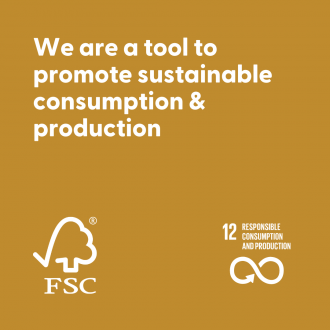
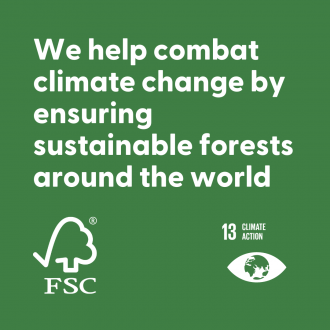

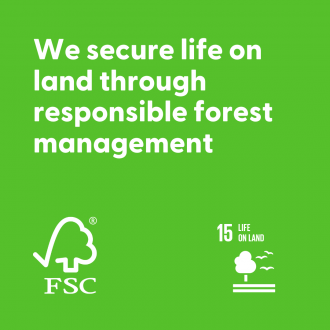
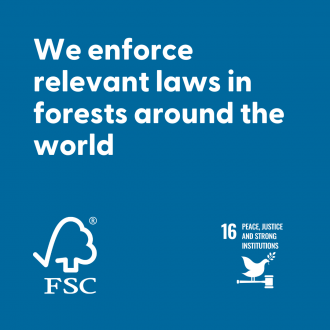
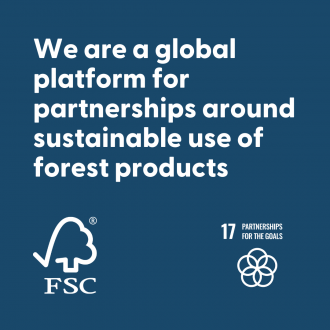
The work of FSC helps achieve 14 of the 17 SDGs
FSC is a sustainability tool that helps to achieve 40 targets under 14 Sustainable Development Goals (SDGs).
This specifically includes SDG 15 - Life on Land - but more broadly the FSC forest stewardship principles also contributes to the SDGs focused on poverty, equality, natural resources, production and consumption patterns, decent work, climate change, inclusive and accountable societies, and global partnerships.


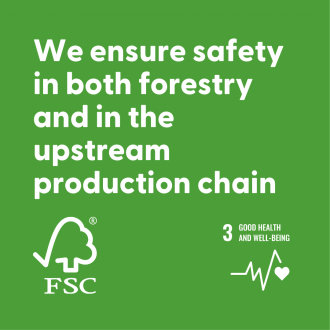
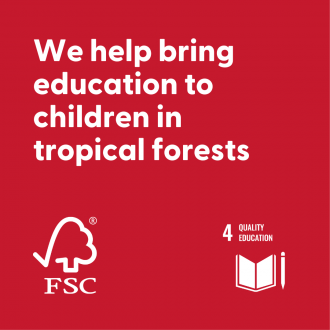


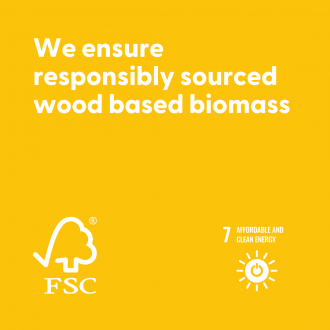


Sustainable Development Goals
In September 2015, the United Nations (UN) adopted the 2030 Agenda for Sustainable Development. This is intended to be a “plan of action for people, planet and prosperity” and “seeks to strengthen universal peace in larger freedom” (UN, 2015).
At the core of this agenda are the Sustainable Development Goals (SDGs). These 17 Goals, with their 169 targets, cover the three dimensions of sustainable development – economic, social, and environmental – with a strong focus on quality of life, justice, and equality, as well as the sustainable consumption, production, and use of natural resources.
